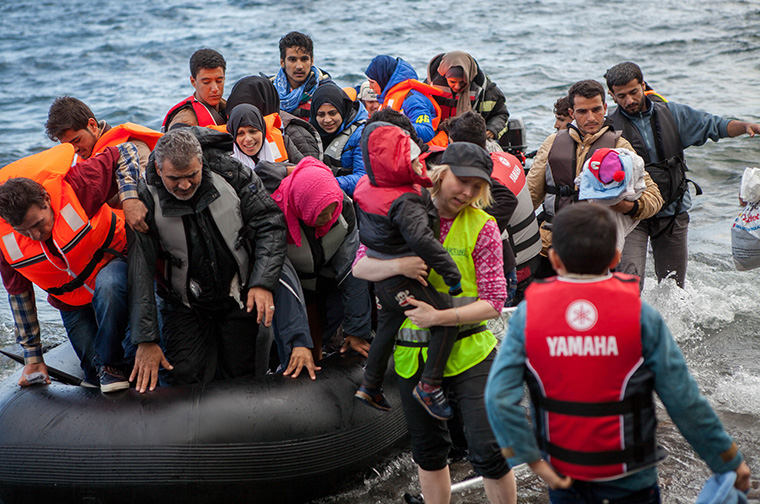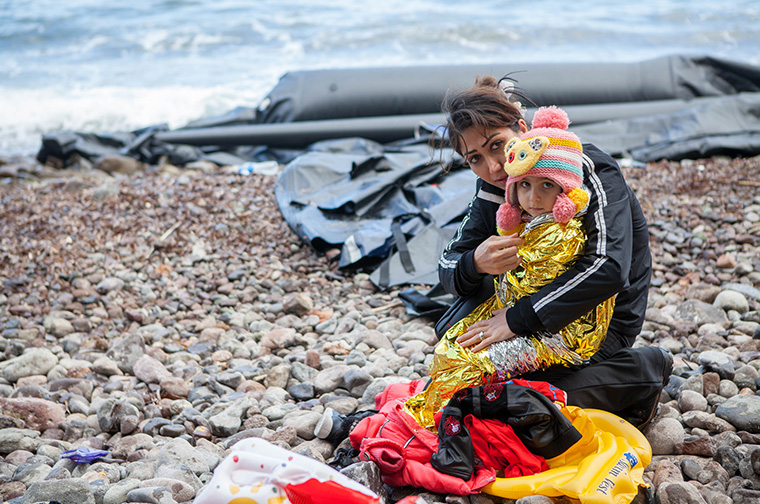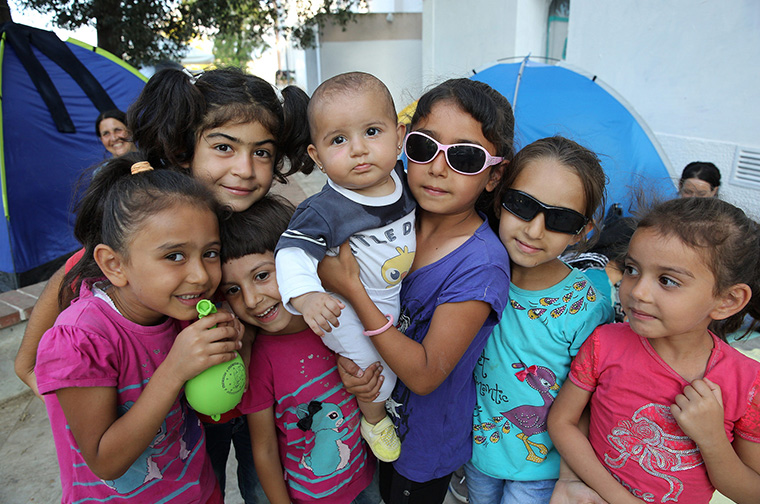History
History and Development of the PIER Program
In 2015 and 2016, more than one million refugees and migrants have made the perilous journey across the Mediterranean Sea to reach Europe’s shores in hope to find a peaceful and safe place to live. One in four people arriving in Europe were children. This constituted one of the largest movements of displaced people across European borders since World War Two.
 © Ben White, CAFOD
© Ben White, CAFOD
Aware of the immediate emergency situation refugees face while crossing the Mediterranean Sea as well as when reaching the coasts of Europe, The Coca-Cola Foundation together with their three partners Caritas Austria, Caritas Italiana and ARSIS Association for the Social Support of Youth quickly responded and designed a program addressing the immediate needs of people rescued in the Mediterranean Sea, supported refugees and migrants during their first steps in their new host societies, and offered the general public a wide range of volunteering possibilities to get active and support people in need: The PIER Program – Protection, Education and Integration for Refugees in Greece, Italy and Austria – was launched.
The overall aim of the PIER Program was to enhance the protection, education and integration of refugees, asylum seekers and migrants in Greece, Italy and Austria, with a particular focus on children, youth and young adults. The program was designed to address the immediate humanitarian needs of migrants, who newly arrived by sea, as well as long-term challenges related to their integration in the host communities. The PIER Program encompassed a variety of activities and services for the beneficiaries, including distribution of warm-up kits in Italy, as well as integration measures in all three partner countries, focusing on formal and informal education, counselling and support measures for labor market integration.
 © Ben White, CAF
© Ben White, CAF
The immediate humanitarian assistance was provided through the distribution of warm-up kits in Italy, which was particularly important taking into account the high numbers of asylum seekers and migrants arriving to the Italian coast in boats. Within the PIER Program 8,000 warm-up kits were distributed to the beneficiaries by the Italian Navy, the NGO Migrant Offshore Aid Station (MOAS) and the diocesan Caritas of Cagliari and Palermo during the search and rescue operations and humanitarian interventions on the high seas, as well as in the ports of disembarkation of the rescued migrants.
On the other hand, the great demand for assisting the integration of refugees, asylum seekers and migrants in their local communities could be observed in all participating countries. The integration support within PIER has been provided by ARSIS in two locations in Greece and by the diocesan Caritas organizations in Italy and Austria.
In Austria, 18 “Lerncafés” were supported within the PIER Program, two in each of the nine Austrian dioceses, including eight newly opened locations, providing after school support and leisure time activities for school aged children. The “Lerncafés” also focused on providing support in other school subjects and on helping children to improve their social skills, to learn how to work and play in a team and to respect each other. In addition, the childrens’ parents received much needed support, guidance and counselling.
In Greece, two Youth Support Centers (YSCs) in Athens and in Thessaloniki assisted children, youth and young adults from vulnerable families (most of them with refugee or migrant backgrounds) and additionally supported their family members with a variety of social issues. The assistance provided began with individual needs assessments and included different types of needs-based social services and counselling (e.g. legal, social, psychological counselling, in-kind assistance, etc.), as well as educational measures and leisure time activities (such as regular language classes and after school support, creative workshops, excursions, etc.).
In Italy, 10 diocesan Caritas organizations successfully implemented various integration measures, focusing in particular on psychosocial orientation and counselling for young adults arriving in Italy, provision of Italian language courses and scholarships for internships, aiming at beneficiaries’ labor market inclusion.
During the first two implementation years of the PIER Program (1/1/2017-2/28/2019), close to 23,000 beneficiaries (children and adults) received support through PIER in the three participating countries. All the activities were implemented with strong involvement of close to 2,200 dedicated volunteers, who offered their time, enthusiasm and skills and acted as buddies, teachers, companions and often also as role models
 © Arie Kievit, Cordaid
© Arie Kievit, Cordaid
Since the challenges tackled by PIER need long-term strategies the PIER Program was extended until the end of August 2020 in Greece and Austria.
Find out more about the current PIER Program | PIER Highlights | PIER II Highlights